Migration as movement
- repurposing the voice/interface to explore aspects of human migratory movement
Dissertation defense 27.6.2022 Terhi Marttila Supervisors: Patrícia Gouveia (FBAUL) and Diamantino Freitas (FEUP)
Motivation
?
"In many ways, citizenship in Western democracies is the modern equivalent of feudal class privilege — an inherited status that greatly enhances one’s life chances" (Carens 2015, 226).
"you have to be able to move, to where the opportunities are in order to take advantage of them. So, freedom of movement is an essential prerequisite for equality of opportunity" (Carens 2015, 228).
?
Original research question: "In primarily voice-based digital art, what are the main design considerations that lead to a playful and engaging experience which simultaneously raises awareness about the issues inherent in the work"
Research questions evolved into: “What are some of the worlds of meanings contained within voice, language, and voice interaction with computers that I as an artist can leverage to talk about the topic of migration?”
And: “What are some of the transdisciplinary perspectives on human migratory movement that could truly enable us as artists and thinkers to depoliticise and to reconceptualise migration as movement?“
?
?
?
☉
We cannot take them all
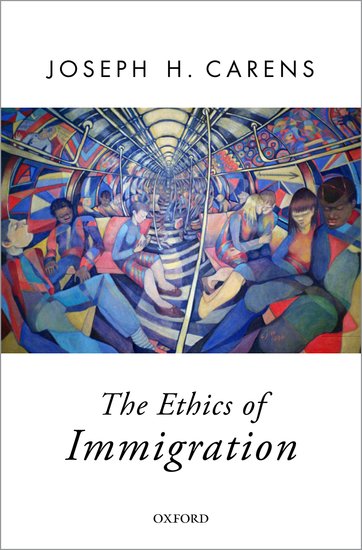
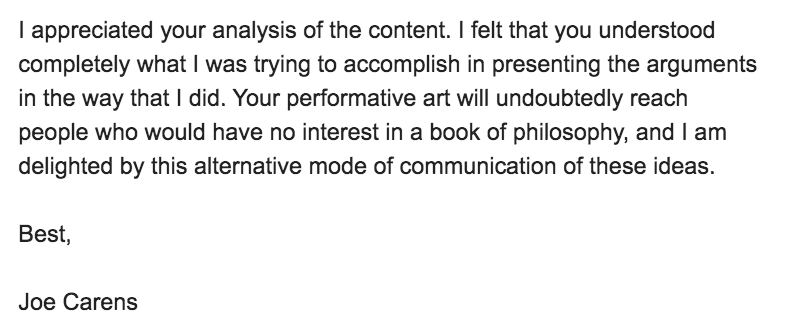
"Contemporary reflection about refugees begins in the shadow of the Holocaust. In discussing the topic of refugees, we should remember one fundamental truth: Jews fleeing Hitler deserved protection, and most of them did not get it." (Carens 2015, 192)
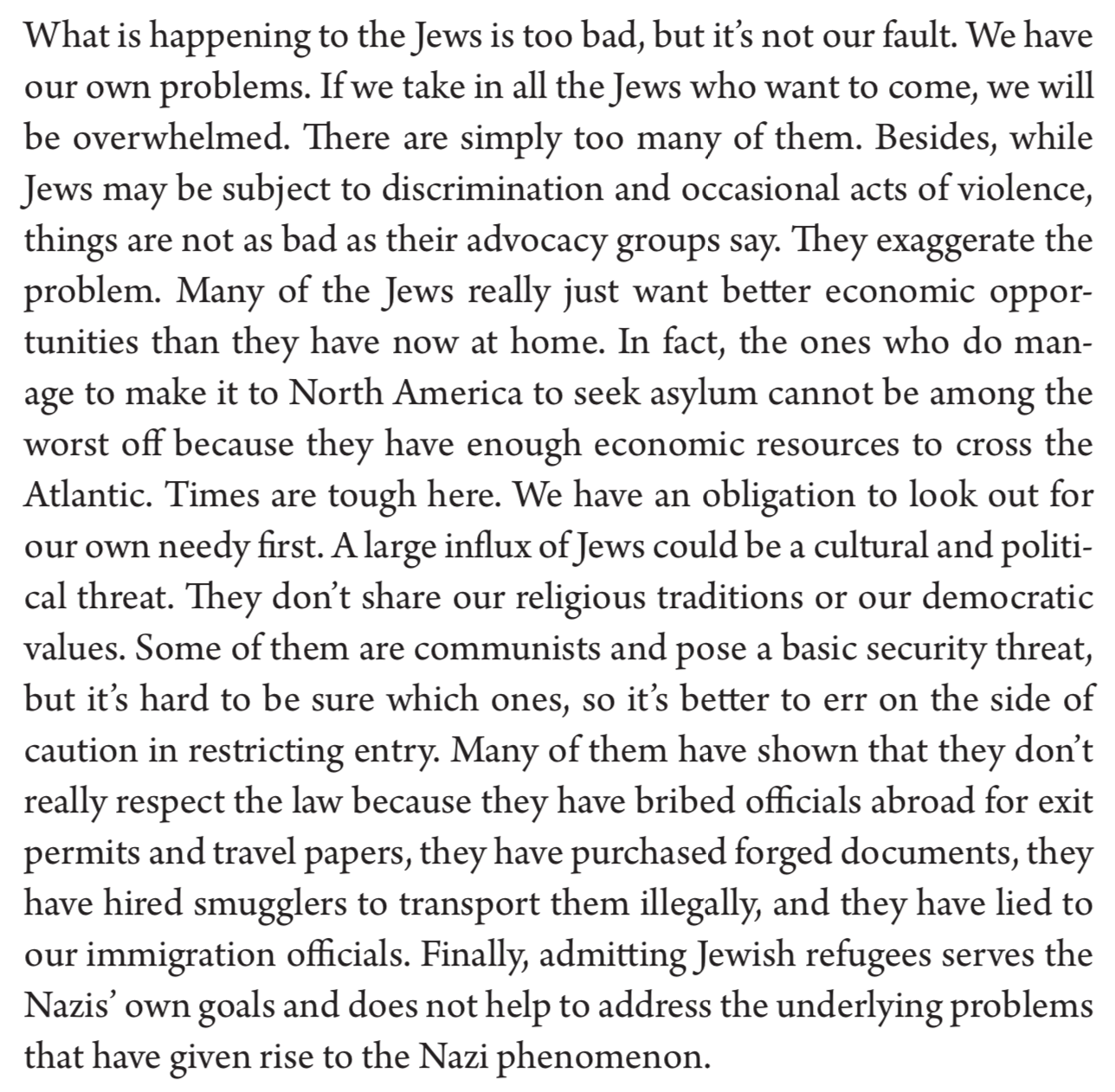
(Carens 2015, 193)
☉
Xenophobia “is an ideology: a set of beliefs and ideas based on the premise that foreigners are threats to the nation and its people. It promotes an irrational fear and hatred of immigrants and demonizes foreigners (and, crucially, people considered to be “foreign”). It defines immigration as a crisis, likening the movement of peoples to an invasion of hostile forces requiring a military-like response. (Lee 2019, 24)
🇩🇯 🗣️ 🇱🇦 🗣️ 🇬🇦 🗣️ 🇰🇿 🗣️ 🇰🇵 🗣️ 🇽🇰 🗣️ 🇲🇱 🗣️
listen to user -> identify country name, then: choose random reason from Carens' list and substitute concepts.
Then: speak random sentence in synthetic voice. Then: speak And we cannot take them all. Not all of them."The French one was horrible. The other ones... for example I think it was from China, or somewhere, or Russia, it was in their language, right? Without [the transcript on the screen] being in English, so I didn’t even figure out that its English?" (Interview with Rho about We cannot take them all)
Expecting unique texts, instead, repetition of reasons!
We cannot take them all. Not all of them.
I am from Portugal, I am from Germany, I am from Finland, I am from Taiwan, I am from France ...
Exhibited at Art of Research in Helsinki, Finland - 12/2020
(Was accepted for presentation in Bergen, Norway - 11/2019, participation cancelled)
☉
Speak out
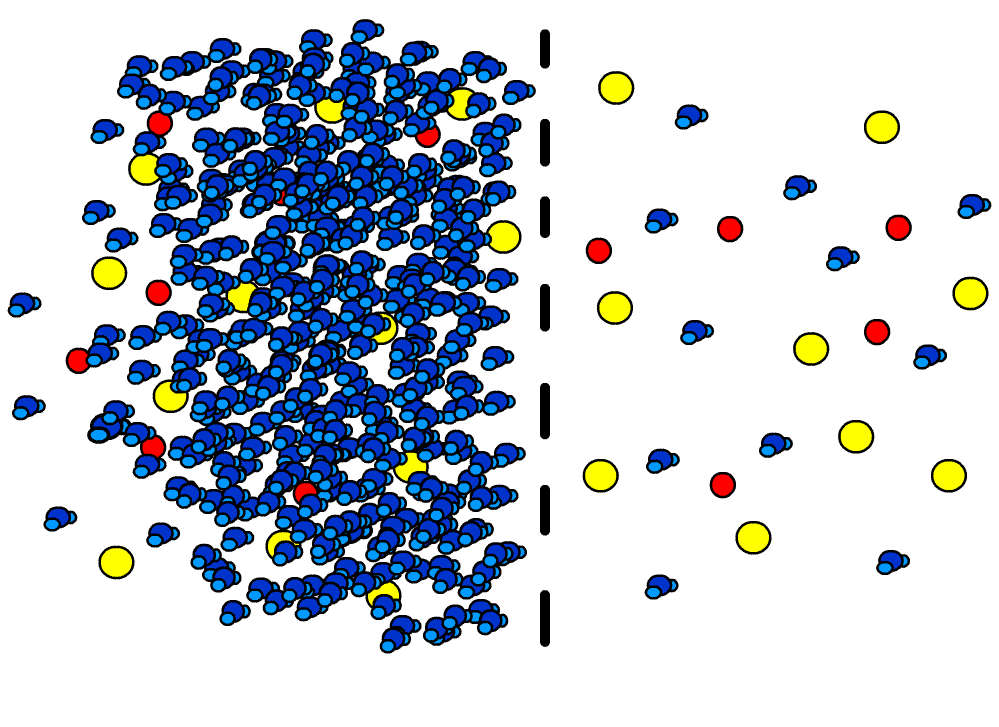
(Marttila 2022, 119 - 120)
"and here because you’re saying something, things kind of closely related, it’s these struggles people have with life in general, so you say it out and you’re kind of putting words to your feelings and thoughts" (Interview with Sigma about Speak out, regarding reading out loud in order to engage with the work)
human body + need/desire/want = movement.
Or not, if: border.
borders as human made discursively created vs.
natural laws.Therefore: use voice to change border rules.
Concept presented at Conciousness Reframed in Porto, Portugal - 06/2019
Published on raum.pt - 12/2020 [ with Patrícia Gouveia (curator) and João Sousa (graphic design) ]
Lightning talk at SPARKS Artists' games (ACMSIGGRAPH Digital Arts Committee) - 3/2022
Exhibited at ELO2022 in Como, Italy - 05/2022
To be published on nokturno.fi - late 2022
☉
Transplanted
"Expellees are uprooted people who try to uproot everything around them so that they may strike roots. And they do this spontaneously, simply because they were expelled. This is the same process that occurs with vegetables, which one may observe when one replants a tree. Occasionally the expellee will become conscious of the vegetable/vegetative aspect of his exile. He may discover that a human being is not a tree. And that human dignity may consists precisely in not having roots. That the human being becomes human only when he hacks off the vegetable roots that tie him down." (Flusser 2003/1984-85, 84 — 85)
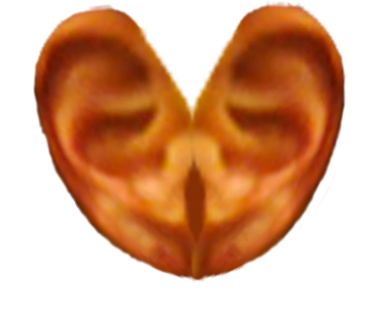
Exhibited in Rovaniemi, Finland - 11/2021
Published on nokturno.fi - 04/2022
☉
Key contributions
The works themselves, the code itself (algorithms) works archived on two platforms: raum.pt and nokturno.fi, all presentations/papers about the works: [ELO, CR, Videojogos, ICLI, EnIAD, Art of Research, SPARKS], insights from users, dissertation as webpage + audiobook, this presentation as webpage + audio!
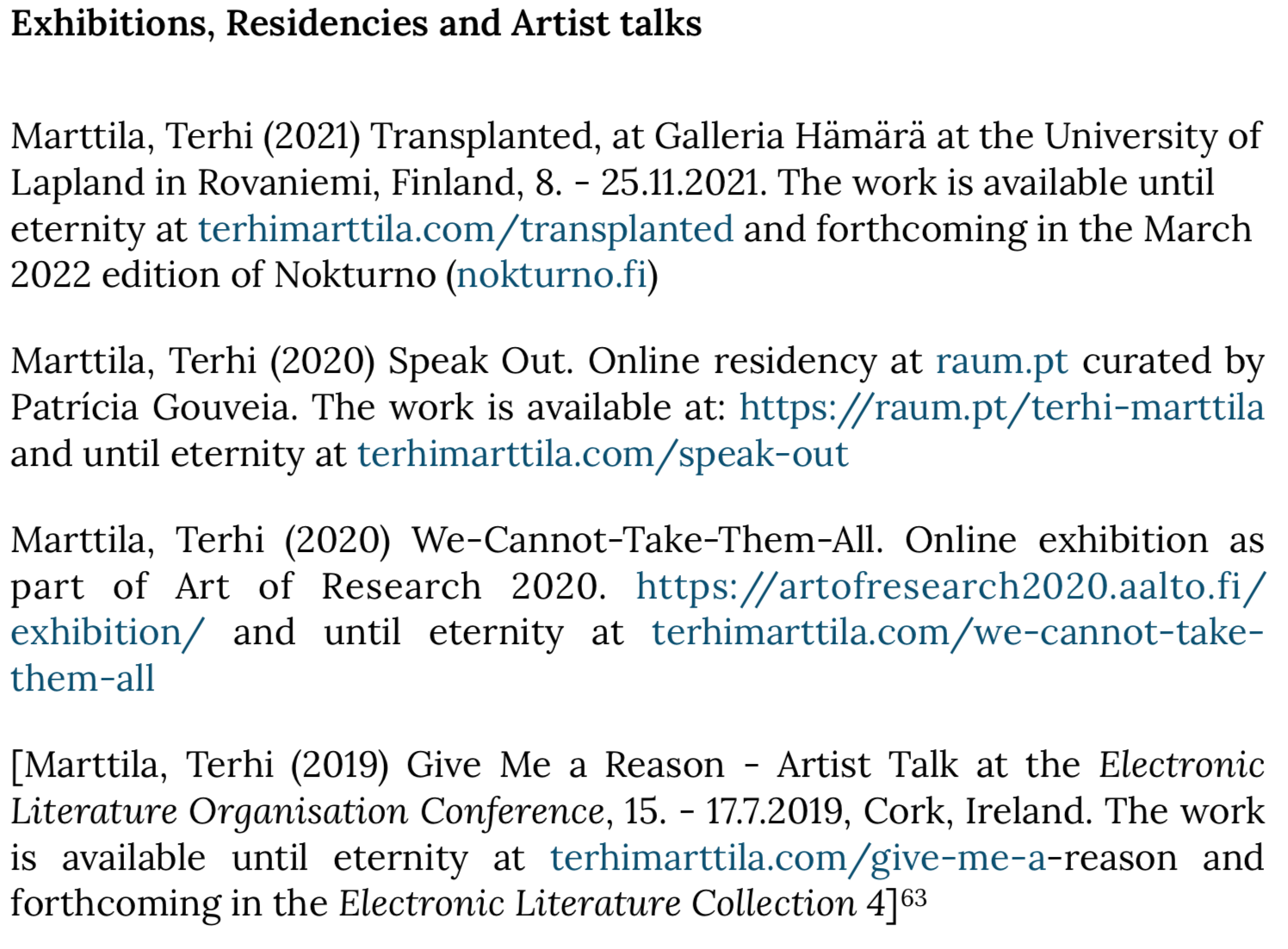
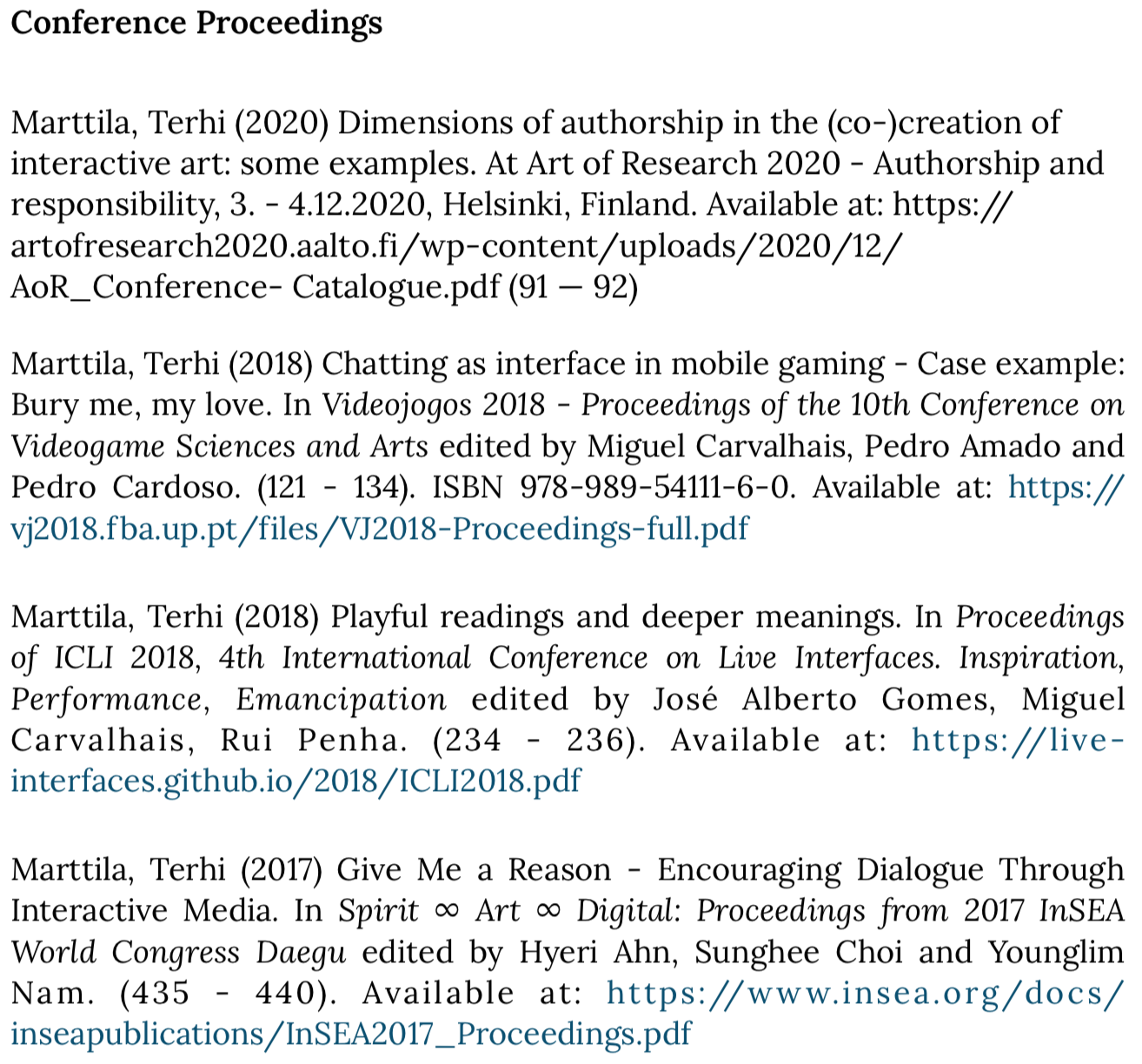
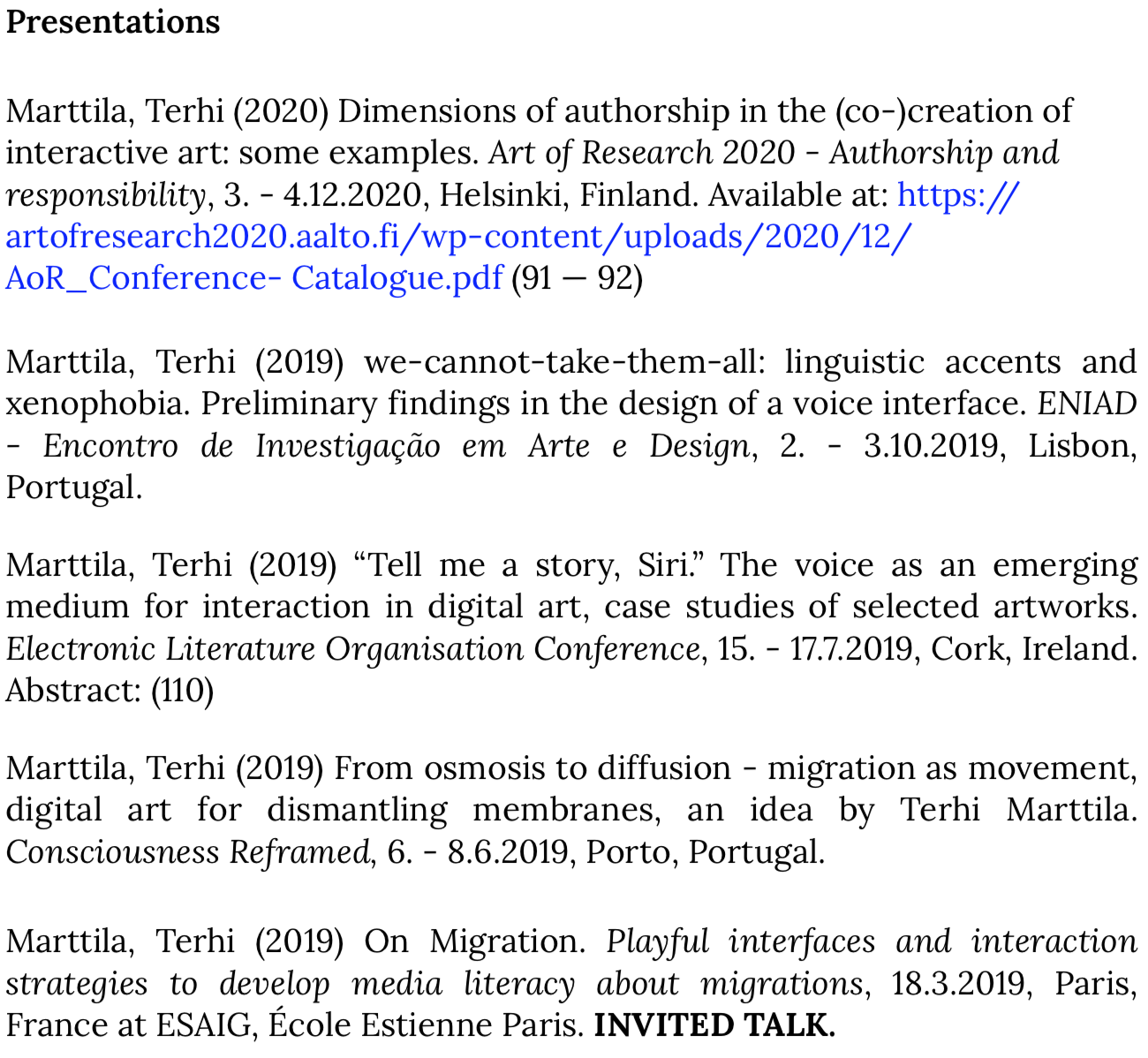
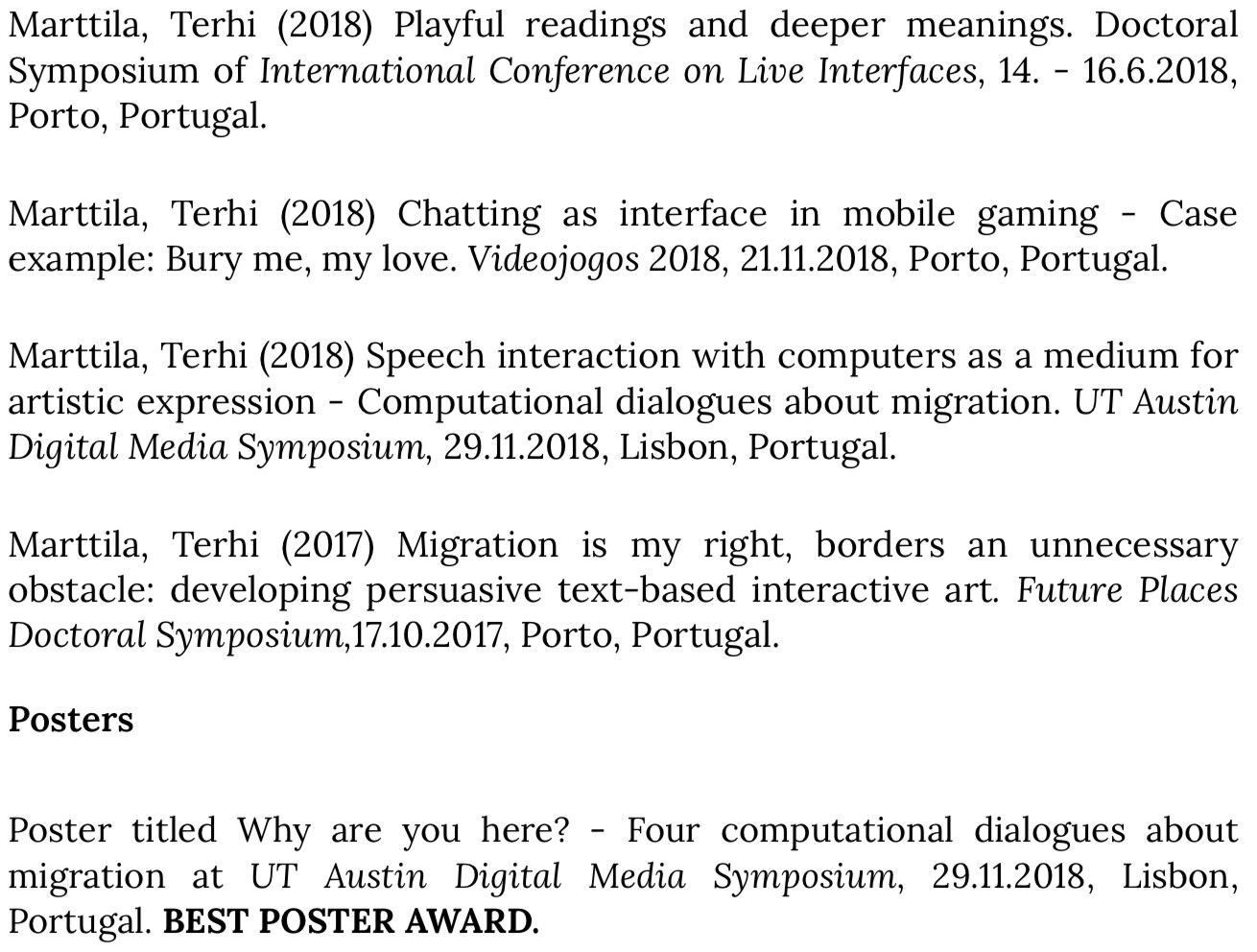
☉
Future work
☉ continue immersion in literature about migration
☉ speaking as performative act
☉ speaking as reading (reading out loud)
☉ transpose work to other languages (Speak out done)
☉ This is you - work in progress about linguistic accent (recorded speech)
☉ my own synthetic voice (PhD: 88k text + 10h audio)
☉ crochet circles + movement
☉
Thesis and audiobook available at https://www.terhimarttila.com/migration-as-movement
References
Bogost, I. (2007) Persuasive games - the expressive power of videogames. Carens, J. (2015) The Ethics of Immigration. Oxford University Press. Cayley, J. (2017) The advent of aurature and the end of (electronic) literature. In Tabbi, J. (Ed.), The Bloomsbury Handbook of Electronic Literature (pp. 73 — 92). Bloomsbury Publishing. Hayles, K. (1999) How we became posthuman - virtual bodies in cybernetics, literature and informatics. The University of Chicago Press. Lee, E. (2019) America for Americans - A history of xenophobia in the United States. Basic Books. Montfort, N. (2021) Exploratory programming. MIT Press. https://mitpress.ublish.com/ereader/12629?preview